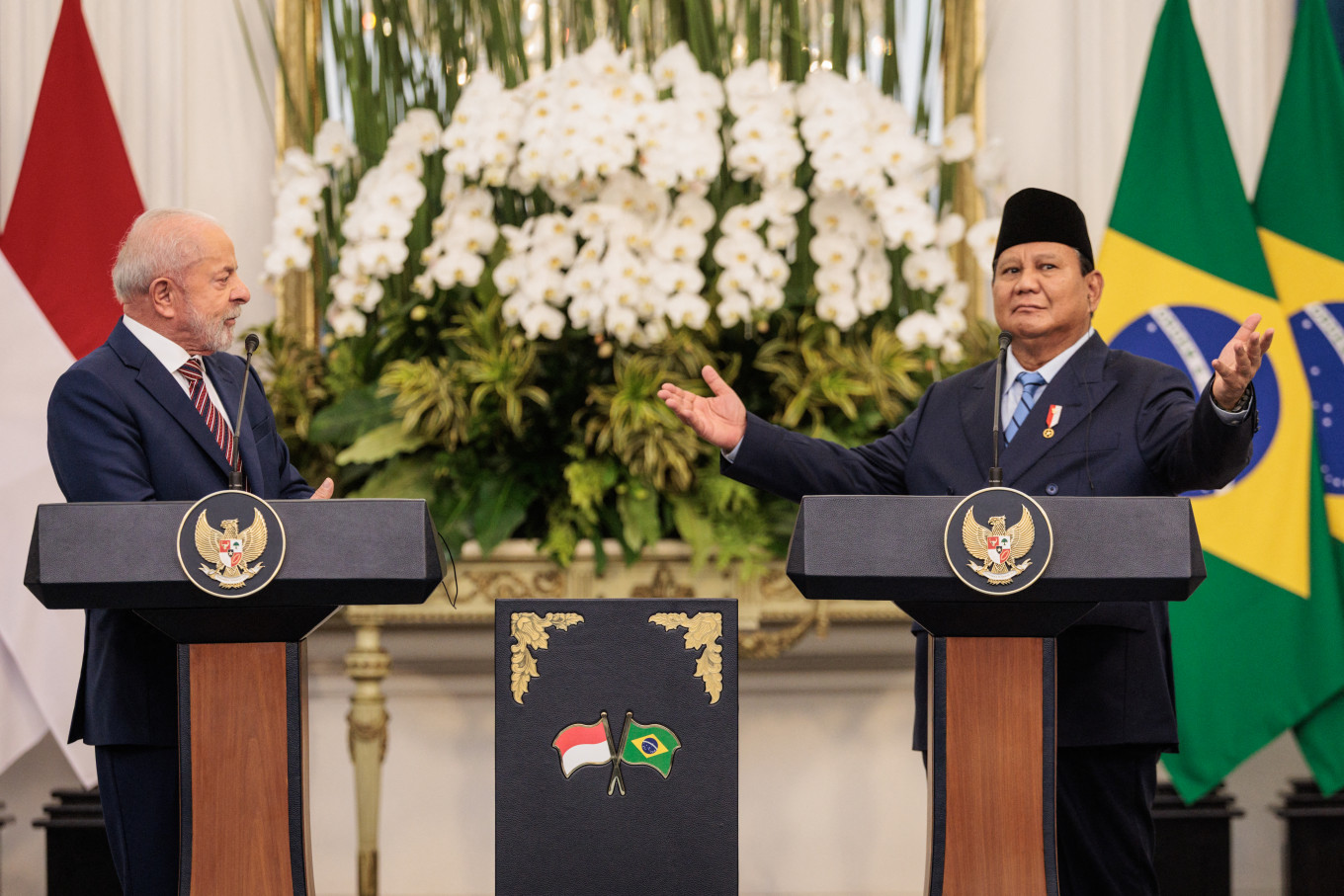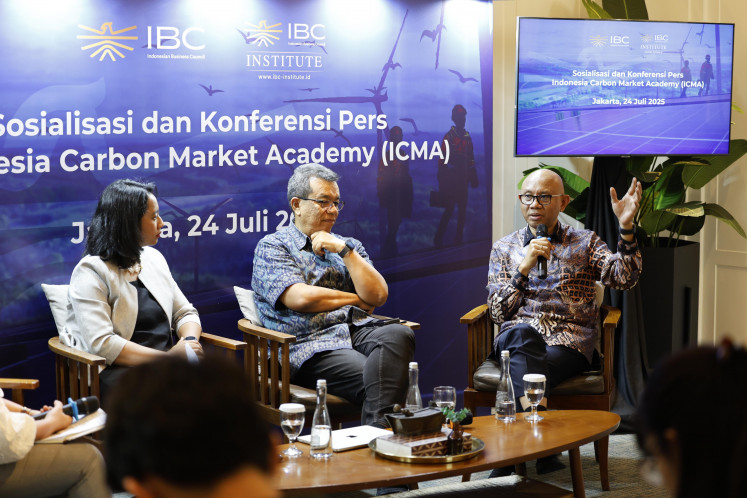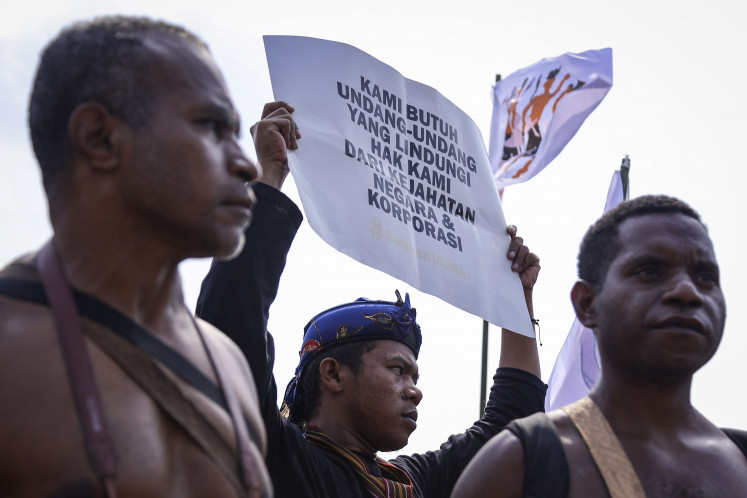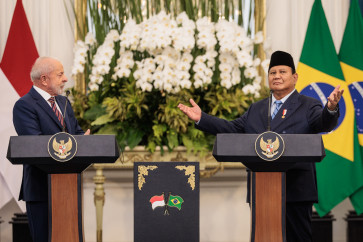Popular Reads
Top Results
Can't find what you're looking for?
View all search resultsPopular Reads
Top Results
Can't find what you're looking for?
View all search resultsFrom Portuguese to ‘gratis’: Prabowo’s double-edged language politics
Skepticism toward state paternalism, visible in online critiques of the free nutritious meal program rollout and in discussions about Prabowo’s ASEAN diplomacy, reflects a generation less easily swayed by spectacle.
Change text size
Gift Premium Articles
to Anyone
 More languages in schools: President Prabowo Subianto ('right') and Brazil’s President Luiz Inácio Lula da Silva attend a press conference on Oct. 23 after their bilateral meeting at the presidential palace in Jakarta. During their bilateral meeting, Prabowo said he plans to add Portuguese to foreign language education in Indonesia, while the sector also prepares to make English a compulsory subject in schools. (AFP/Yasuyoshi Chiba)
More languages in schools: President Prabowo Subianto ('right') and Brazil’s President Luiz Inácio Lula da Silva attend a press conference on Oct. 23 after their bilateral meeting at the presidential palace in Jakarta. During their bilateral meeting, Prabowo said he plans to add Portuguese to foreign language education in Indonesia, while the sector also prepares to make English a compulsory subject in schools. (AFP/Yasuyoshi Chiba)
W
hen my nine-year-old heard President Prabowo Subianto’s announcement, she asked, “Are there even Portuguese teachers?”
It was an innocent question, but one that cuts through the President’s latest policy spectacle over the stated introduction of Portuguese into the national curriculum during Brazilian President Luiz Inácio Lula da Silva’s recent visit to Jakarta.
The announcement came on the heels of Timor-Leste’s long-awaited admission to Association of Southeast Asian Nations (ASEAN), as its 11th member. This move closed a half-century loop that began with Indonesia’s 1975 invasion, a 24-year occupation, and independence in 2002. Portuguese is an official language in the country.
Its symbolism may have been coincidental, though it could appear deliberate, a gesture of reconciliation dressed as diplomacy, and an act of cultural projection layered over a region in transition.
Prabowo’s Portuguese language plan still seems to reveal less about linguistic curiosity, than about the symbolic language that his presidency speaks. Like the free nutritious meal (MBG) program that has defined his first year, it hints at a politics of language, a carefully scripted blend of paternal command and populist theater that shapes both his domestic and foreign agendas.
Prabowo’s approach, at home and abroad, appears to operate on dual frequencies. The Portuguese initiative may signal a Global South and reconciliation positioning, aligning Indonesia with Brazil and the Lusophone (Portuguese-speaking) world. Yet, the move also projects control and hierarchy.
It is a gesture of magnanimity from a leader still wrestling with the shadows of his past military venture in East Timor, where his name remains tied to well-documented controversies.


















